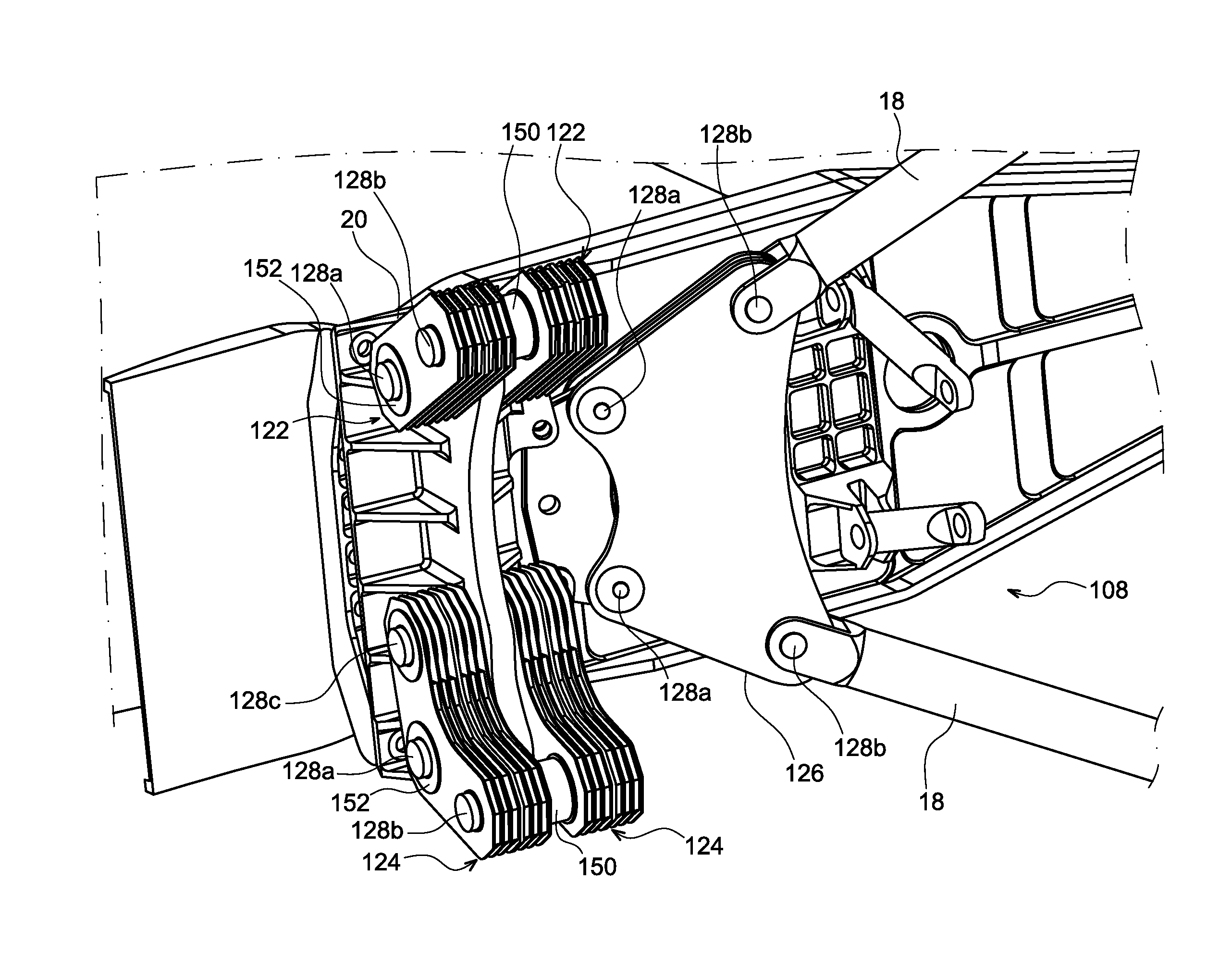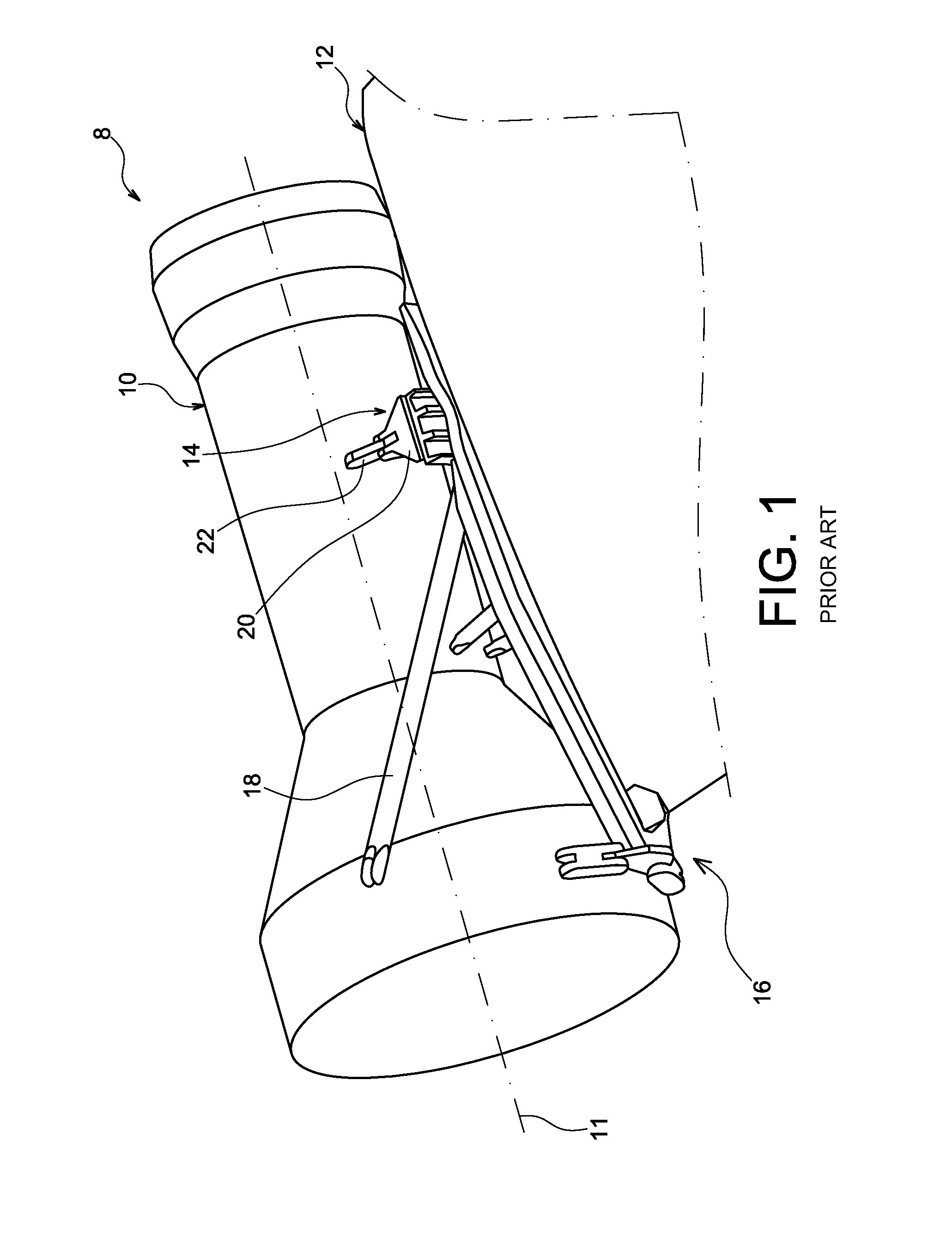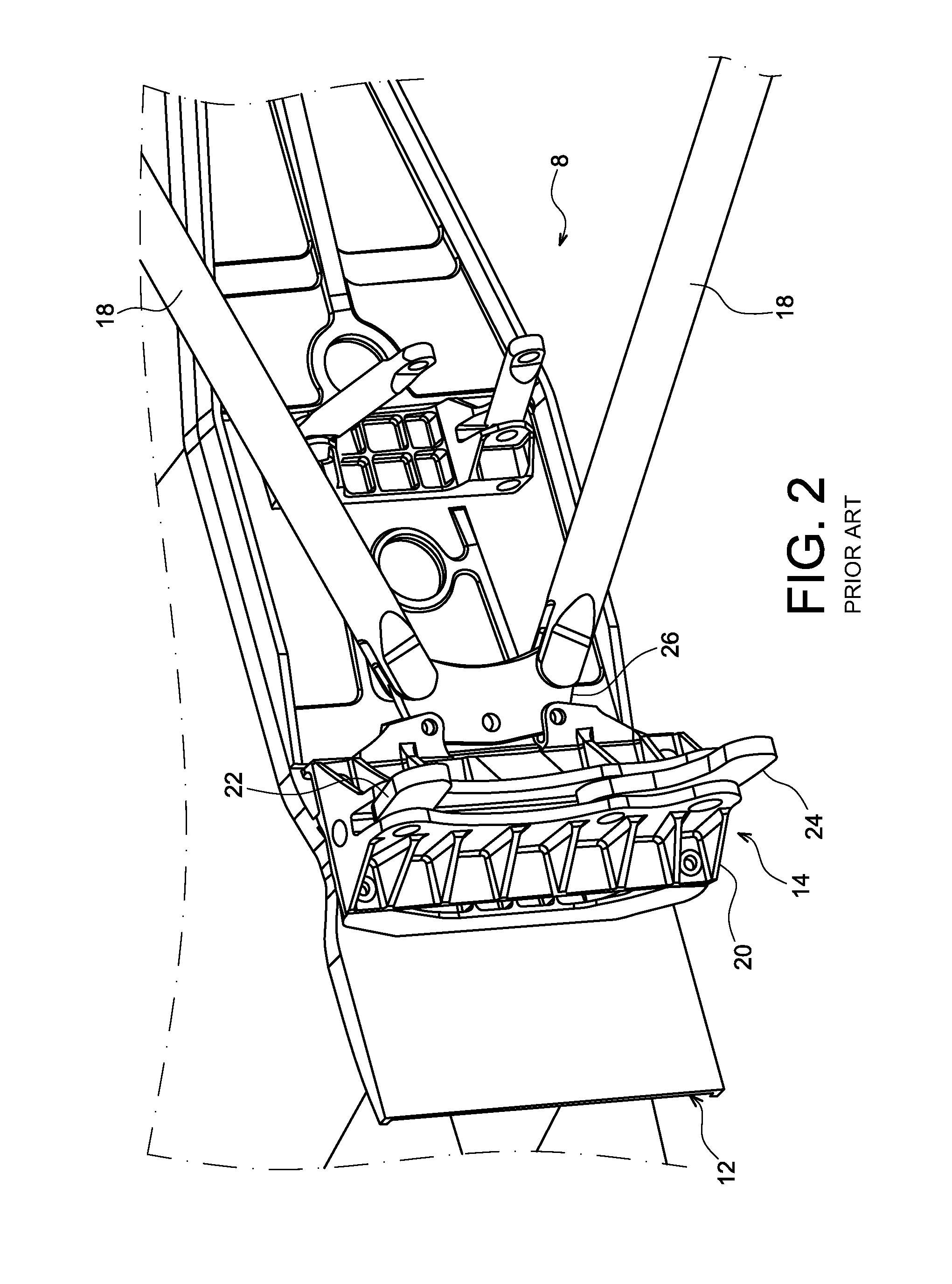Flexible linking device for an aircraft propulsion system
a technology of flexible linking and propulsion system, which is applied in the direction of power plant construction, aircraft power plants, rubber-like material springs, etc., can solve the problems of increasing the wear and tear of the fuselage structure, affecting the comfort of passengers, and in theory affecting the vibrations of the turbine engin
- Summary
- Abstract
- Description
- Claims
- Application Information
AI Technical Summary
Benefits of technology
Problems solved by technology
Method used
Image
Examples
Embodiment Construction
[0097]FIG. 3 illustrates a propulsion system 108 for an aircraft, which is similar to propulsion system 8 of FIGS. 1 and 2, but which includes linking devices which allow the vibrations of the turbine engine to be filtered. For reasons of clarity this turbine engine cannot be seen in FIG. 3.
[0098]Forward engine attachment 114 thus includes two connecting rods 122 and two three-point shackles 124, which have appropriate flexibility for such filtering of vibrations. The same applies to spreader beam 126, to which thrust force transfer connecting rods 18 are connected.
[0099]The two connecting rods 122 are similar and installed parallel with one another, i.e., they have the same axes, such that they provide an intrinsic safety function, also called a failsafe function, as will be shown more clearly in what follows. The same applies as regards the two three-point shackles 124.
[0100]Connecting rods 122, spreader beam 126, and shackles 124 are three linking devices according to the present...
PUM
 Login to View More
Login to View More Abstract
Description
Claims
Application Information
 Login to View More
Login to View More - R&D
- Intellectual Property
- Life Sciences
- Materials
- Tech Scout
- Unparalleled Data Quality
- Higher Quality Content
- 60% Fewer Hallucinations
Browse by: Latest US Patents, China's latest patents, Technical Efficacy Thesaurus, Application Domain, Technology Topic, Popular Technical Reports.
© 2025 PatSnap. All rights reserved.Legal|Privacy policy|Modern Slavery Act Transparency Statement|Sitemap|About US| Contact US: help@patsnap.com



